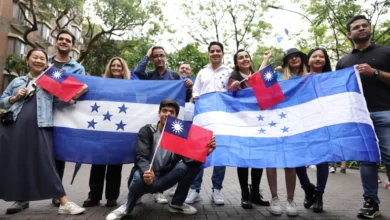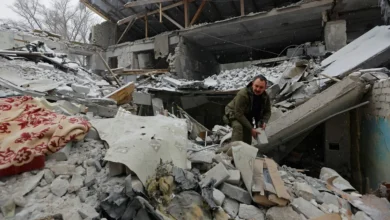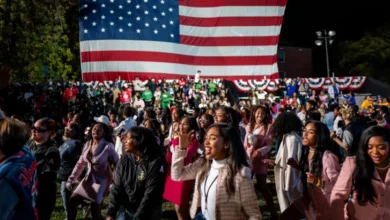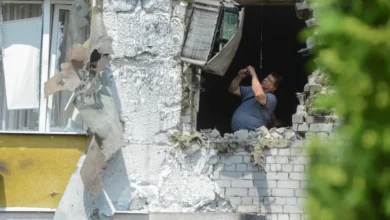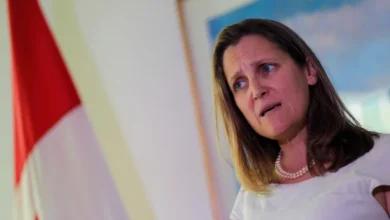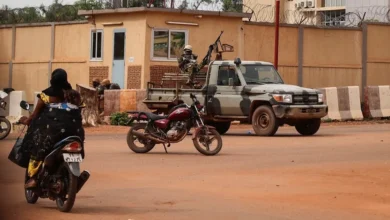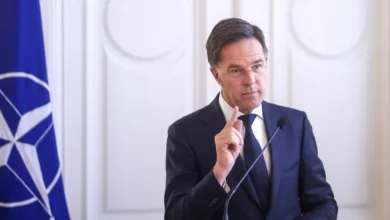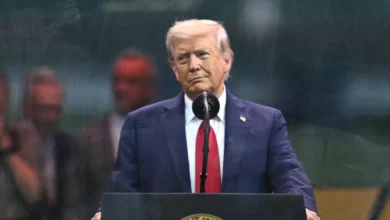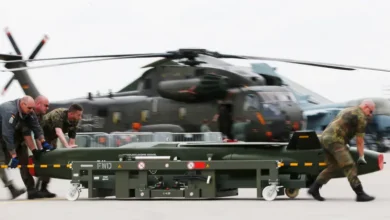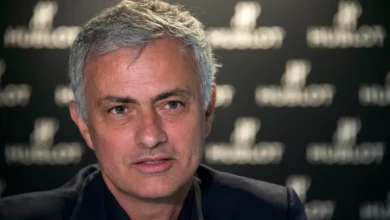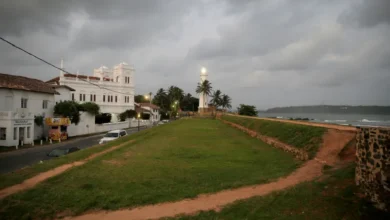US President Biden visits Vietnam: Wartime foes to highest-level partners?
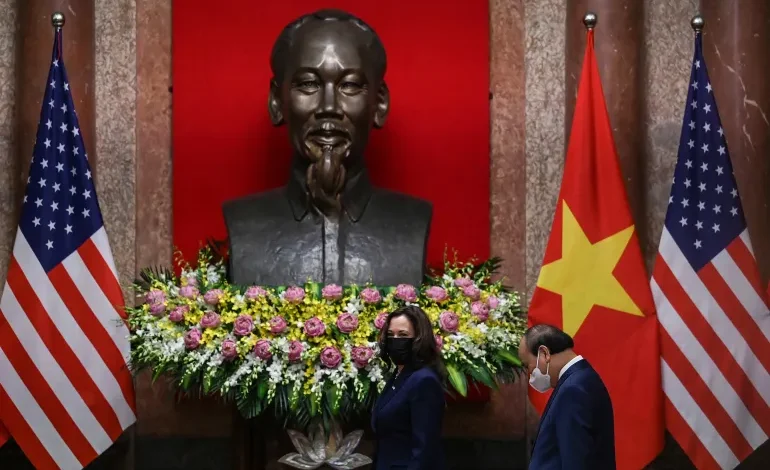
Just days ahead of US President Joe Biden’s visit to Vietnam for key talks on trade and closer diplomatic relations, the president paid homage to events from an earlier and very different time – when Washington and Hanoi were at war.
At the White House on Tuesday, Biden presented the Medal of Honor, the United States military’s highest award, to 81-year-old Larry Taylor, a retired army captain who had flown a Cobra attack helicopter during the height of the Vietnam War in 1968.Under fire, out of fuel, and disregarding orders to return to base with his two-seater helicopter, Taylor persisted and saved the lives of four American soldiers who were surrounded by approximately 100 Vietnamese fighters.
Taylor’s actions “rewrote the fate of four families for generations to come”, Biden said at the award ceremony.
When Biden lands at Hanoi’s Noi Bai International Airport on Sunday, he steps into a very different Vietnam and a phenomenally changed relationship with an old war foe.Biden is scheduled to meet the most senior leaders of Vietnam’s Communist Party – the political organisation that was once an enemy – and is expected to sign agreements that elevate US relations to the highest level possible with Hanoi.
“This visit is a remarkable step in the strengthening of our diplomatic ties,” US National Security Advisor Jake Sullivan said ahead of the visit.
“It reflects the leading role that Vietnam will play in our growing network of partnerships in the Indo-Pacific,” Sullivan said.
Both countries, he also said, had laboured to overcome the “painful shared legacy” of the war, which resulted in the deaths of millions of Vietnamese and 58,000 US service members.
While diplomatic ties and trade are foremost in the scheduled meeting between Biden and Vietnam’s most powerful figure, Communist Party General Secretary Nguyen Phu Trong, Washington also has its eyes set on China, which is increasingly flexing its economic and military muscle in the Asia Pacific region.
China will be watching Biden’s visit closely, too, assessing whether Vietnam’s cosying of relations with the US weakens Beijing’s influence in Hanoi or alters strategic interests with its southern neighbour.
‘Remarkable breakthrough in bilateral ties’
Vietnam and the US are already signatories to a “comprehensive partnership”, and speculation has focused on the elevation of relations to the highest level of a “comprehensive strategic partnership” – the most senior level in Vietnam’s diplomatic hierarchy, said Le Hong Hiep, senior fellow and coordinator of the Vietnam Studies Programme at the ISEAS – Yusof Ishak Institute in Singapore.
If that were to occur during Biden’s visit, it would “represent a remarkable breakthrough in bilateral ties”, Hiep wrote recently in the ISEAS Fulcrum online magazine.
Vietnam “only forms such partnerships with those that it views as of great importance for its security, prosperity, and international standing,” Hiep said.
If the agreement is signed, Vietnam will be inviting Washington into a club of just four other comprehensive strategic partners: China, India, Russia, and South Korea.
While concerns over a backlash from China are credible, upgrading ties to such a level with the US at this time “makes perfect sense” for several reasons, Hiep said.
